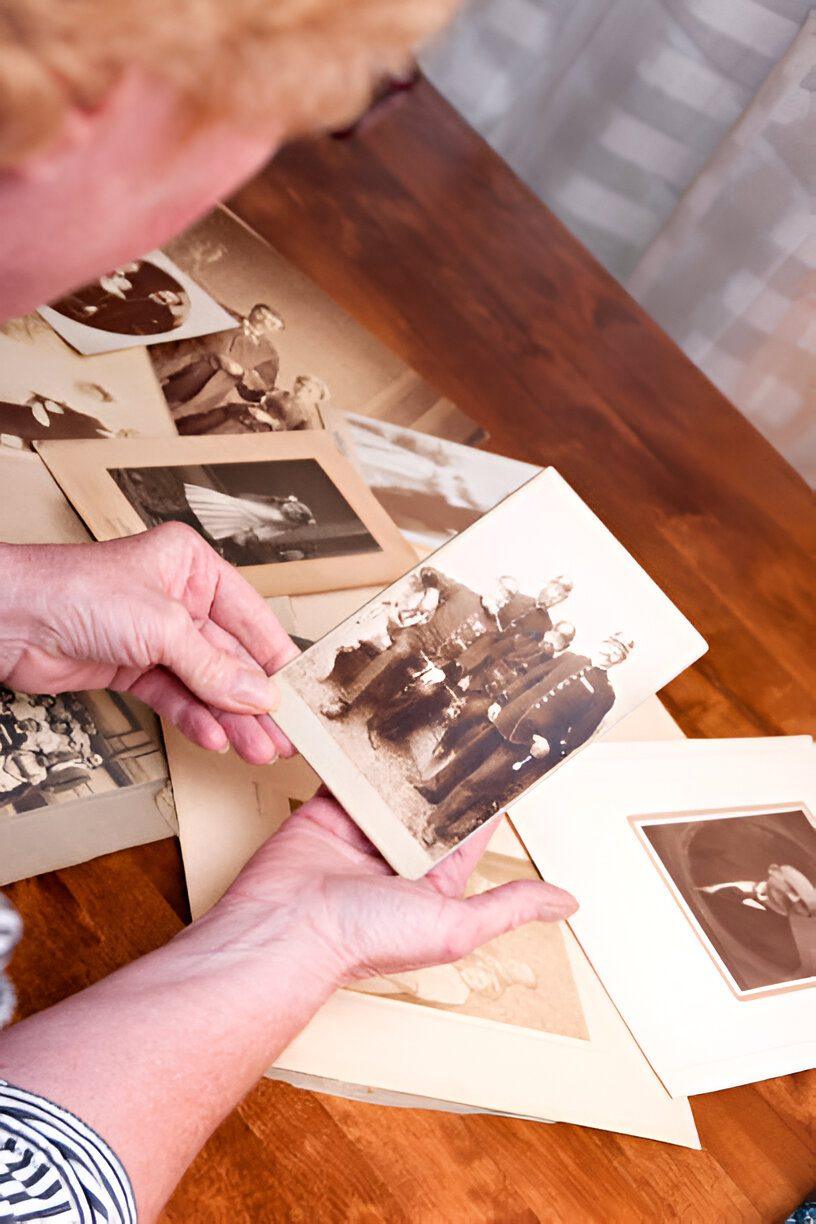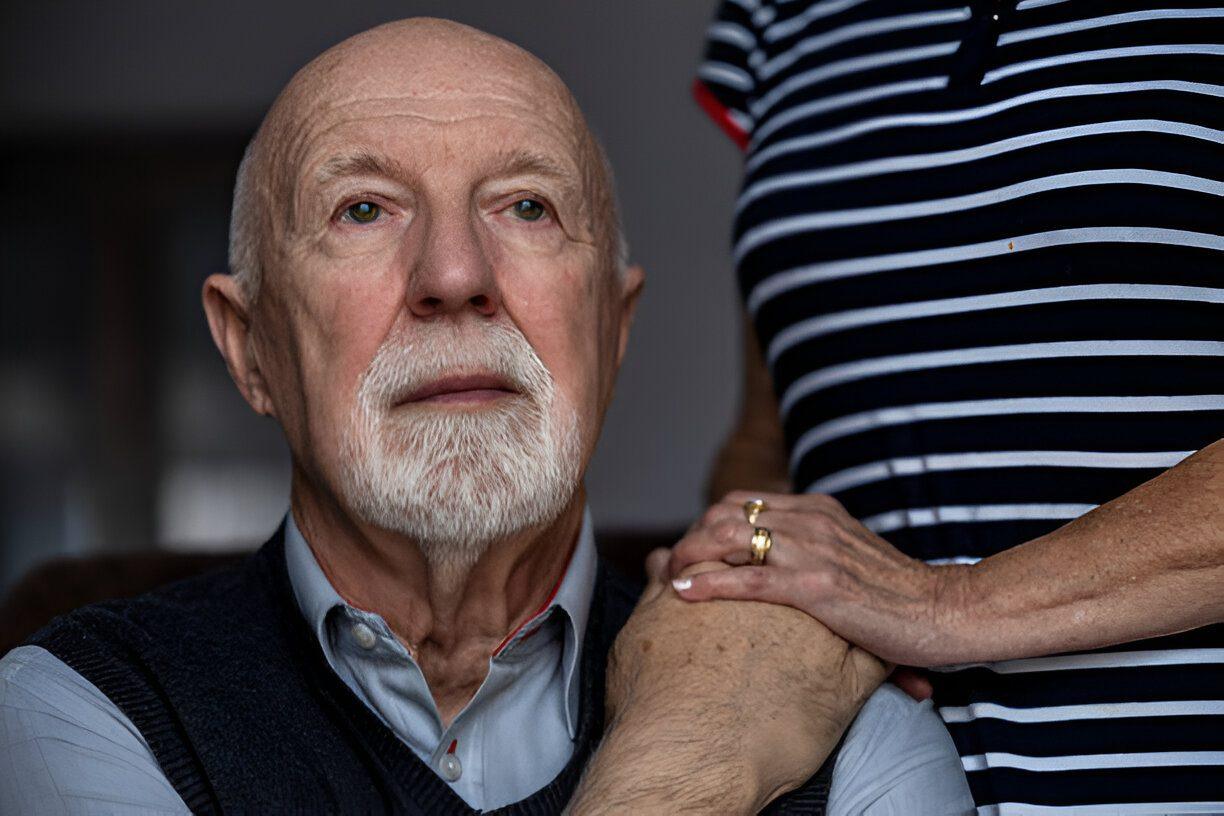A Slow, Profound Loss
A diagnosis of Alzheimer’s disease is not merely a medical event—it’s a journey through grief that begins long before any final farewell. As memory, independence, and personality gradually fade, both patients and loved ones grapple with anticipatory mourning. This unfolding loss can feel deeply isolating, but by acknowledging the grief, seeking support, and nurturing emotional resilience, it’s possible to traverse this path with compassion and courage.
When Emotional Turmoil Follows Medical News

When Memory Slips Away: The Layers of Grief in Alzheimer’s
Grief in Alzheimer’s: A ‘Living Loss’
Unlike sudden loss, Alzheimer’s creates a slow, living loss. While your loved one is physically present, the essence of who they are shifts over time. This ongoing erosion of memory and identity triggers:
Anticipatory Grief
From the moment of diagnosis, loved ones mourn the future that will never be.
Analogy: A sandcastle eroding with every wave, each memory slipping away piece by piece.
Personality & Identity Fade
Someone once articulate may now struggle for words. A joyful spirit may become withdrawn or irritable.
Analogy: Reading a beloved book where the letters slowly fade, obscuring the familiar story.
Isolation & ‘Living Loss’
Unlike standard grief, this process is neither complete nor final. Caregivers often feel trapped, grieving someone still alive.
Analogy: Standing in a train station where a loved one is always departing but never gone.
Navigating the Emotional Toll of Caregiver Grief
1. Recognize & Accept Your Grief
It’s normal to mourn “too soon” in Alzheimer’s. Release guilt by affirming this grief is valid.
2. Seek Support: You Are Not Alone
- Support Groups: Online or in-person groups offer shared experiences and practical tips.
- Family & Friends: A listening ear can lighten the burden of sadness and worry.
- Professional Counseling: Guidance from a therapist can help manage complex emotions.
3. Practice Self-Compassion
- Set realistic expectations—both for your loved one’s capabilities and your own.
- Find respite or breaks—even short ones—for self-care and emotional renewal.
4. Let Go of Past Expectations
- Celebrate small joys—a fleeting moment of recognition or a shared laugh.
- Focus on presence rather than what used to be.
Supporting a Loved One Through Memory Decline
Communicate with Patience & Simplicity
Use short sentences, calm tones, and eye contact. Avoid correcting them harshly—sometimes going along with their reality is kinder.
Engage in Familiar Activities
Music, scents, or hobbies can spark joyful recognition even as memory fades. Simple, tactile experiences can create moments of connection.
Use Visual & Tactile Reminders
Label photos and memory books to reinforce identity.
Surround them with comforting items from their past.
Emphasize Emotional Presence Over Facts
Even if they forget your name or shared events, they still sense love, warmth, and kindness.
Finding Meaning in the Journey
Despite the sorrow Alzheimer’s brings, it can also illuminate the depth of love and empathy within us:
- Personal Growth: Caregivers often discover new reservoirs of patience and compassion.
- Value of Small Moments: A fleeting smile, a genuine laugh—these become precious memories.
- Shared Legacy: Even as memory falters, the love and stories passed down remain, woven into family history.
“Memories may fade, but the bond remains—proving that love transcends even what the mind can’t hold.” — Clarissa L.
Things To Try This Week
-
Create a Simple Memory Book:
Compile photos or short anecdotes about your loved one’s life. Share it with them if possible, flipping through pages to spark recognition.
- Reach Out to a Support Group:
Whether online or local, connecting with others who understand the complexity of Alzheimer’s grief can ease feelings of isolation.
-
Plan a Gentle Activity Together:
Choose something comforting—like listening to familiar music or a quiet walk—fostering a positive moment that needs no specific memory to be meaningful.
Conclusion
Where Grief and Love Coexist
Grieving an Alzheimer’s diagnosis is a profound emotional challenge—one that unfolds gradually, reshaping both patient and loved ones. It’s a path marked by fear, sorrow, and unexpected hope, as each fading recollection underscores how precious life truly is.
By embracing anticipatory grief, seeking supportive communities, and focusing on nurturing the here-and-now, caregivers and families can find moments of connection and meaning in the midst of heartbreak. Though Alzheimer’s may steal memories, it cannot erase the love that endures.
Acknowledging the slow heartbreak of Alzheimer’s isn’t about letting despair win; it’s about finding empathy, support, and resilience amid change. As you walk alongside your loved one, each memory you safeguard, each tender moment you create, honors the love that endures beyond forgetting.
Explore our cherish collections below for caring resources, reflective keepsakes, and a compassionate community—guiding you toward hope, even when the mind mourns.
More Reflections, More Growth
Loss is complex, and the road to healing is different for everyone. These reflections offer insight, support, and guidance as you navigate this journey.
When Grief Weighs on Mind, Body, and Spirit: Understanding the Silent Toll of Loss
Grief touches every part of us—the mind, body, and spirit. From cognitive fog to broken heart syndrome, this guide explores the full spectrum of grief’s effects and offers insights into how we can heal and carry the weight of our loss.
Debunking the “Time Heals All Wounds” Myth: Transforming Grief Through Active Healing
Grief doesn’t fade with time—it requires active participation and healing. Learn why “time heals all wounds” is a myth and how engaging in grief through expression, ritual, and support can lead to true emotional recovery.
The Link Between Grief and Heart Problems: Why Loss Can Literally Break Your Heart
Grief doesn’t just affect the heart emotionally—it has real physical consequences on cardiovascular health. Learn about the link between grief and heart problems, including Broken Heart Syndrome, and discover how to protect your heart during mourning.
Grief and Weight Changes: Why You Might Lose or Gain Weight After a Loss
Grief can lead to significant weight changes, whether through appetite loss or emotional eating. This page explains the science behind grief-related weight fluctuations and offers guidance on how to manage these changes during the healing process.
When Grief and Insomnia Collide: Why You Can’t Sleep After a Loss (And How to Fix It)
Grief affects more than just the heart—it has profound physical effects. This page explores how grief impacts the body, from stress responses to immune system suppression, and offers tips on how to care for your body while grieving.
Why Does Grief Make You Feel Sick? The Science Behind Grief’s Impact on Your Body
Grief isn’t just emotional—it’s physical. While many expect to feel sadness or mental fatigue after losing someone significant, fewer anticipate the profound bodily aches, exhaustion, and even flu-like symptoms that grief can trigger. By disrupting...
Healing After Heartbreak: Understanding the Link Between Grief and Heart Disease
Grief can have a significant impact on your heart health, leading to conditions like Broken Heart Syndrome. This article explains the link between emotional distress and heart disease and offers tips for protecting your heart while navigating the difficult journey of grief.
Chronic Illness and the Grief That Follows: Learning to Accept a New Normal
Chronic illness creates an ongoing form of grief as individuals navigate the loss of their former life. This article explores the emotional toll, coping strategies, and the path to acceptance and a new normal in the face of illness.
Holding Onto Hope: Coping with the Emotional Toll of a Cancer Diagnosis
A cancer diagnosis brings overwhelming emotions—fear, sadness, and anger. Learn how to cope with the emotional toll of cancer, find resilience, and hold onto hope during this challenging journey.
Explore Journeys of Healing and Solace:
Discover dedicated spaces that offer understanding, guidance, and connection through grief. From the loss of loved ones to life’s challenging transitions, each category provides a pathway to reflect, connect, and find peace in shared experiences.


























